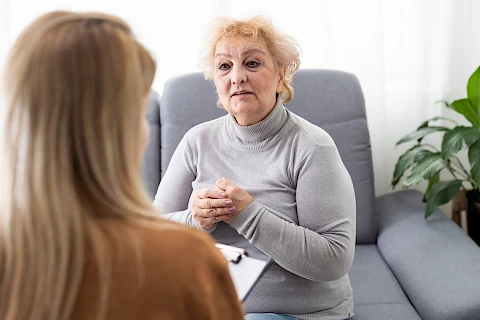
As we aim to provide the highest quality care for our senior loved ones, it's crucial to understand the entire spectrum of their health needs, including mental health. Older adults often experience panic disorder, which is often underdiagnosed as a normal part of aging. Identifying those symptoms can help caregivers spot potential problems and anxiety management for seniors.
An Overview of Tension in Older Adults
Generalized anxiety disorder (GAD) is a natural response to stress, but when it becomes overly persistent or disproportionate to the situation, it morphs into a debilitating disorder. Nervousness in older adults often presents differently than their younger counterparts, making it more challenging to identify.
Recognizing the Indications of GAD in Elderly Retirees
Many factors contribute to these dreadful feelings: physiological changes, loss of loved ones, or general stress. With this in mind, identifying anxiety in seniors involves vigilance of both physical and emotional indicators.
Physical Manifestations
Physical signs of tension may include chronic fatigue, sleep disruptions, unexplained aches or pains, and stomach discomfort. It's worthwhile to remember that elderly loved ones are more inclined to report physical symptoms than emotional ones.
Emotional Reactions
Individuals living with anxiety may seem excessively worried or fearful. They might exhibit restlessness, irritability, or have trouble concentrating. Their outlook on life can dramatically change, appearing more pessimistic than usual.
Behavioral Signs
Symptoms include avoidance of certain situations due to irrational fears. Frequent restroom use, refusal to participate in once-loved activities, and fear of change can all be subtle signs of severe apprehension. Routine changes, such as eating less or neglecting personal hygiene, can also indicate feelings of dread.
Help With Anxiety Management for Seniors
Noticing nervous signs in a loved one can be concerning. Here are some steps to cope with elderly stress:
- Open communication. Encourage your loved one to talk openly about their feelings without judgment. This creates a safe space for them to express themselves.
- Seek professional help. A mental health professional can provide an accurate diagnosis and recommend suitable treatments for managing apprehension effectively.
- Become a supportive caregiver. Learn relaxation techniques and activities that reduce panic disorder, such as guided meditation, regular exercise, or promoting a healthy diet. You can then guide and support your loved one in incorporating these practices.
How Senior Helpers Fort Lauderdale Can Help
Senior Helpers Fort Lauderdale supports families with anxiety management for seniors. Our team of professional caregivers recognizes signs of mental distress and provides in-home care services to ensure your loved one's comfort. Contact Senior Helpers Fort Lauderdale; we're ready to provide the support you need in Fort Lauderdale, Pompano Beach, and Coral Springs.